He was on the front lines of Quebec street protests against the former Jean Charest Liberal government's tuition hikes in spring 2012. Today, he's riding a new wave of momentum that could shake Quebec's political landscape.
Gabriel Nadeau-Dubois, 27, is a rookie member of the National Assembly for the Montreal riding of Gouin. He's also one of the three members of the left-leaning, pro-independence Québec Solidaire (QS) party elected to the legislature.
QS seeks a break from traditional politics that have dominated the province for decades and an end to old economic policies that they say favour the wealthy and fail to adequately address poverty.
The social democratic party added thousands of new members after his arrival in politics and Nadeau-Dubois's supporters view him as the 'saviour' who can deliver on their platform.
The Quebec media has also helped elevate the former student activist with glowing headlines. Last month, he was on the cover of a prominent news magazine, l'Actualité, that featured the words “Saint Gabriel?” as its headline.
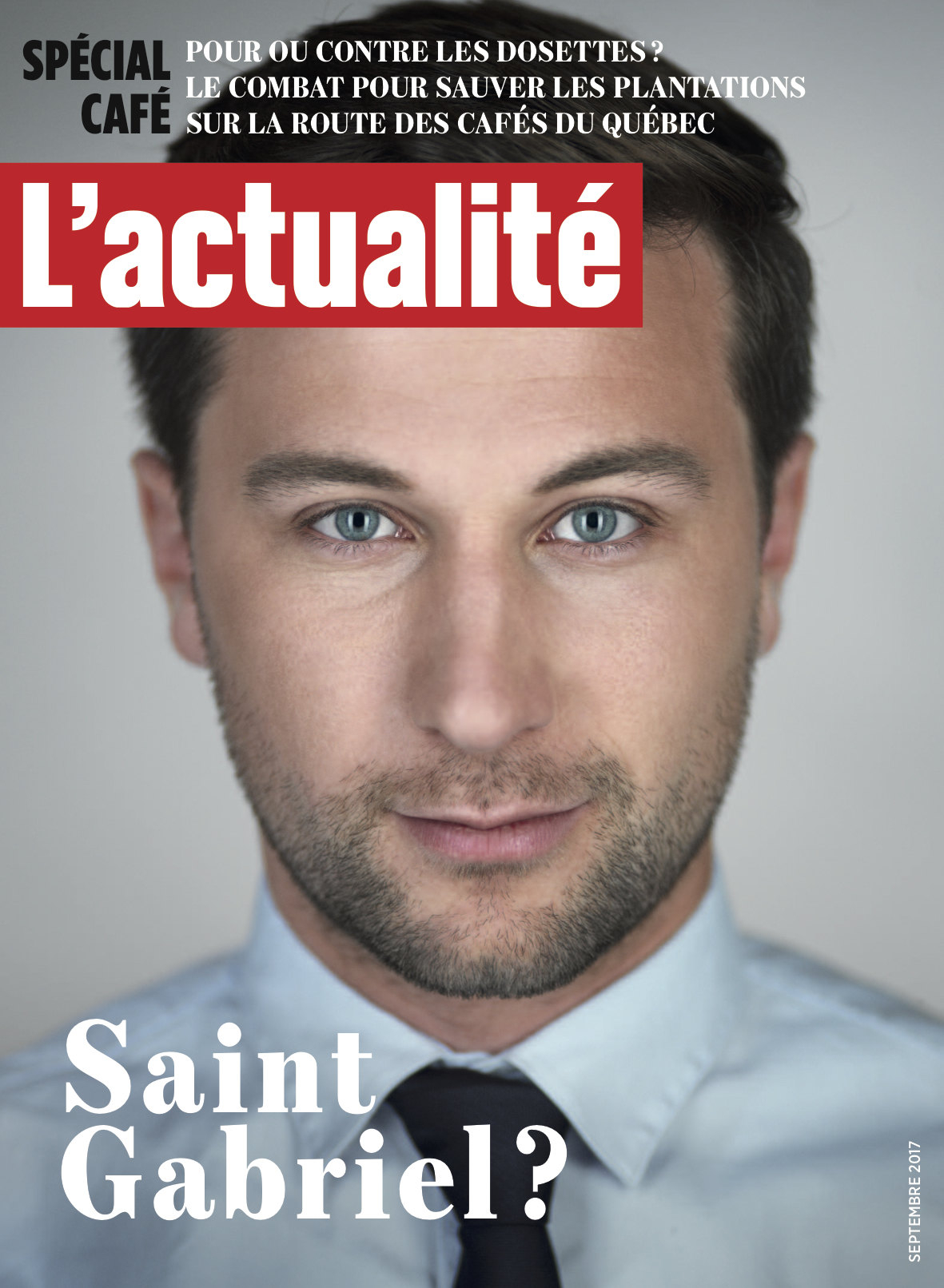
QS is an unconventional party. It shuns the idea of having a leader and instead calls its elected members spokespeople for the movement.
But it also brings a traditional aspect of Quebec politics to its platform as a sovereignist party alongside the Parti Québécois.
QS was founded in 2006, driven by the anti-globalization movement and concerns that Quebec was drifting too far to the right under Premier Jean Charest's government. The QS founders believed that the PQ, traditionally associated with social democratic policies, was failing to champion their concerns.
Although the older party remains a force in Quebec politics as the official opposition in the National Assembly, QS has slowly chipped away at the PQ's political base of support.
In an interview with National Observer on Sept. 11, Nadeau-Dubois explained how his party is now taking Quebec by storm. He also addressed the rise of far-right extremist groups in Quebec, his political choices, plans for sovereignty, the importance of fighting climate change, fake news, and how his party hopes to gain more support for its economic proposals.
There's no such thing as a 'half-Quebecer'
Nadeau said the duty to condemn far-right groups applies to the entire political class in Quebec.
"It needs to be very, very clear that these groups don’t have a place and that their message will be severely criticized, and that we will respond every time these groups take a stand,” he said.
“Our fellow citizens of Muslim faith, they’re not half-Quebecers... They are full Quebecers who form today and tomorrow’s Quebec. We don’t want to make them feel like there’s a difference between them and what we would really call Quebecers.”
Nadeau-Dubois turned heads as a charismatic student spokesperson in the famous 2012 Quebec student protests, known as the "printemps érable," (maple spring) when he and other student leaders called for a freeze on tuition fees.
He was criticized by some for not clearly distancing himself from the violence of some clashes between police officers armed with tear gas and cayenne pepper, and protesters. But Nadeau-Dubois said he was proud of his role in the protests, which were credited in leading to the defeat of the Charest government in an election a few months later.
“I am very (aware) that I will never be able to detach myself from (those protests) and I don’t mind. It’s been part of my path and it has been a key moment in my life, it has been a key moment for a lot of people in Quebec, it has been a key moment for the history of Quebec,” he said.
He described this political awakening in a book, Tenir tête ( In defiance) — published four years after the protests. He has also spent the past few years finishing his degree in history, culture and society at Université du Québec à Montréal, earning a spot as a regular commentator for news outlets such as Radio-Canada.
His tour of the province, Faut qu’on se parle (we need to talk), in 2016 allowed him to reconnect with his political roots.
In March 2017, he officially joined Québec Solidaire.
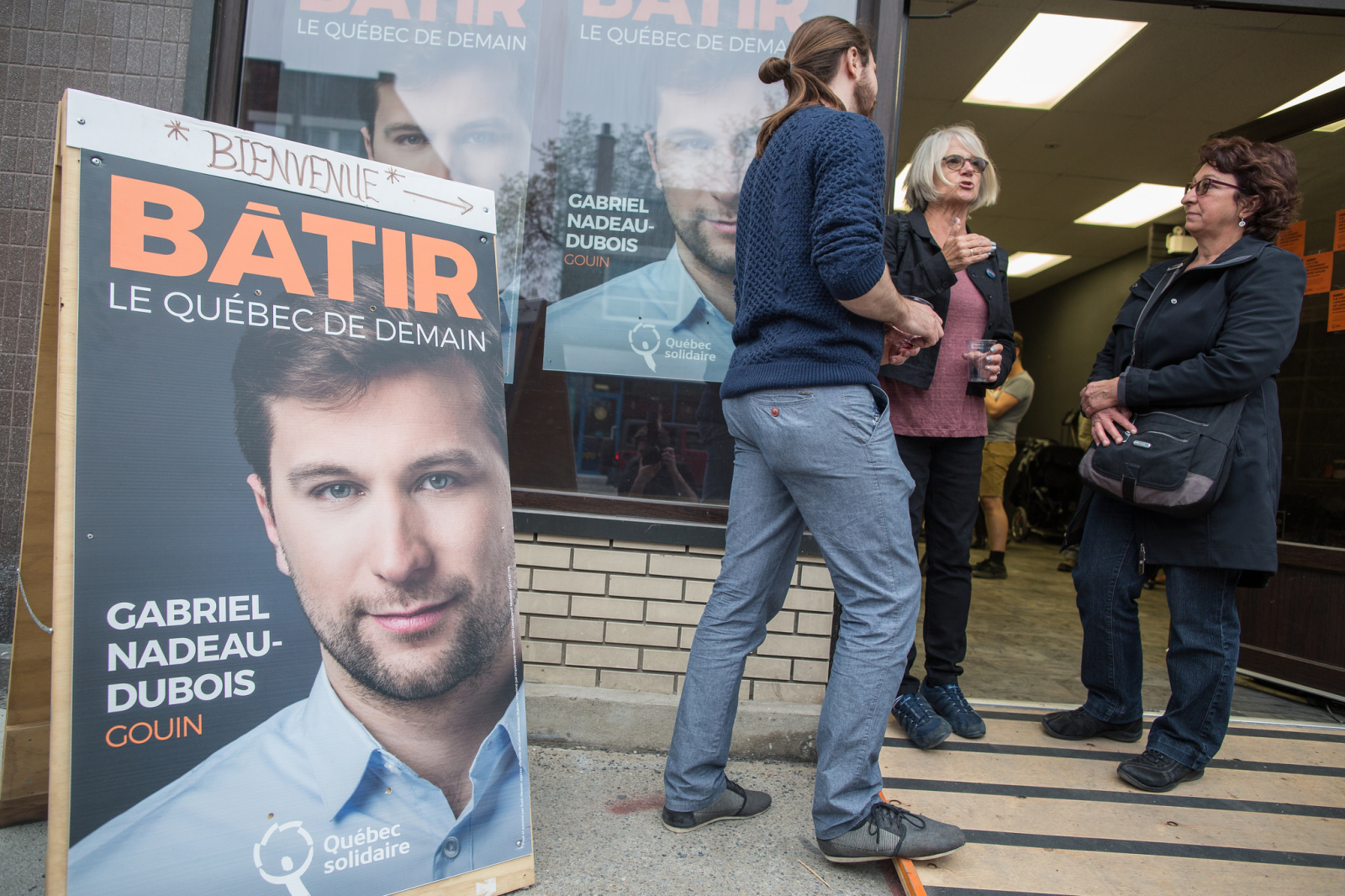
A grassroots political party
In May, he won the Montreal riding of Gouin in a byelection prompted by the retirement of QS MNA François David. He became party co-spokesperson with longtime activist and politician Manon Massé.
Five days after he joined the party, QS had 4,000 new members — a 40 per cent membership increase.
In the last few months, and as provincial elections approach next year, Québec Solidaire has steadily risen in polls.
The party started the year with nine per cent support in January 2017. That increased to 15 per cent two months later, according to a Léger poll. Another poll for the Montreal Gazette found QS support increased from 14 to 18 per cent while PQ support slid from 24 to 22 per cent between May and June 2017 among 1,501 voters interviewed by phone.
“There’s a profound wave in Quebec made of people who are tired of traditional Quebec parties, who are tired of the unending alternation between the (Parti Québecois) and the (Liberal Party) and who want something else,” Nadeau-Dubois said. "I think Québec Solidaire is currently reaping what it has sown over the past 10 years."
The latest poll still show the governing Quebec Liberals leading with 30 per cent of vote intentions while Parti Québécois (PQ) and Coalition Avenir Québec (CAQ) are close behind at 26 per cent according to a poll for the Montreal Gazette in September among 1,501 voters interviewed by phone.
While there was a possibility of merging with the Parti Québecois for a while, Québec Solidaire eventually chose not to because of a lack of common values and objectives, explained Nadeau-Dubois.
"Québec Solidaire doesn’t want to do politics with parties which, in part are dividing people based on their religions and origins and also are postponing independence to no one knows when."
With independence being at the heart of Québec Solidaire’s political objectives, Nadeau-Dubois has some new ideas to make this goal a reality if his party forms a government.
“The independence project that matters is a radically inclusive and democratic project, a project to transform Quebec’s society. What Québec Solidaire proposes is not only to leave Canada but to transform Quebec’s society in all its aspects, and one of these aspects is to get rid of the old British monarchical institutions (such as the governor general's office) which are anti-democratic,” he said.
Below is a transcript of National Observer's interview with Gabriel Nadeau-Dubois at his office in Montreal, edited for length and clarity.
How did you decide to join Québec Solidaire?
"It was a process. Starting in 2012, I was approached by political parties, and at first, I decided to refuse offers because I wanted to do something else before getting into politics. I wanted to write, to finish my degree, to continue discovering Quebec as well, to visit it, to understand it, and after four years spent in the world of media, the world of writing, I felt the need to get back on the ground — to reconnect with people, to dive back into political action in a broader sense.
"That’s why I started the Faut qu’on se parle tour (in 2016) ... I wanted to leave the sidelines and be in the action. ...In January (2017), I received an email from Françoise David (former spokesperson and MNA of Québec Solidaire) telling me she was leaving (politics) and inviting me to join... I’d imagined I would be able to think (about my future decision regarding politics) over the next year and a half, but it moved fast and I had to (make a decision) much faster than expected.
Why Québec Solidaire?
"I had already been approached by several parties but during the “Faut qu’on se parle” tour (in 2016), as I reflected about the idea of getting involved in politics, (and) it became clear to me that there was only one party representing my values and only one party that had the potential to become the great political movement that I think Quebec needs. So it became clear fast enough that if we wanted to profoundly change things, that’s where I needed to go."
Are you at peace with your role in the 2012 students protests?
"I am very conscious I will never be able to detach myself from them and I don’t mind. It’s been part of my path and it has been a key moment in my life. It has been a key moment for a lot of people in Quebec and it has been a key moment for the history of Quebec, so I live very well with that (history) and I have no problem with it.
"What I don’t want is that people reduce me to that, because it’s part of me, but I’m more than a former student spokesman. But I’m not looking to distance myself from 2012, to the contrary, I’m very very proud of what we collectively accomplished in 2012."
A part of the population still sees you as a student spokesman…
"Yes, that’s for sure. But like I say, I can’t deny that it happened and I’m not looking to do that. I trust people’s intelligence and I’m meeting more and more of these people who say, ‘Oh we disagreed with you in 2012,’ or ‘There was this thing that bothered us, but today we’re able to get over that and listen to your ideas and propositions.’
"I don’t have a choice but to trust people’s intelligence on that matter. I can’t change people’s perceptions. All I can do is present my ideas, present my proposals, present my party, Québec Solidaire, and trust that people will be able to see further than 2012."
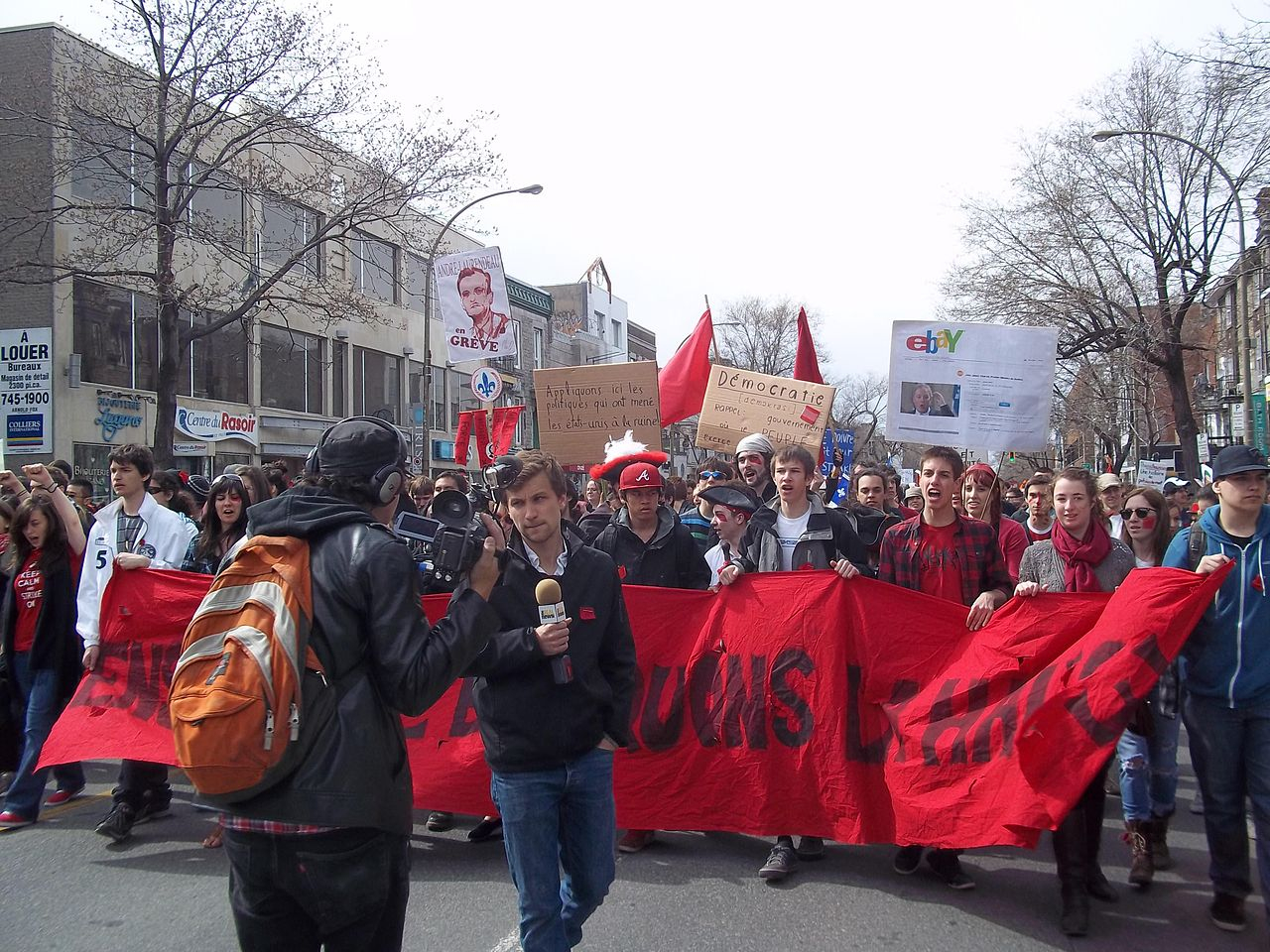
How do you explain that Québec Solidaire's popularity has been rising since you’ve joined them?
"I think Québec Solidaire is currently reaping what it has sown over the past ten years. Yes, there has been factors like Manon (Massé)’s victory in (the) St-Marie-St-Jacques (riding), my arrival. Obviously I can’t deny these were important factors but there’s more than that. "
"There’s a profound wave in Quebec made of people who are tired of traditional Quebec parties, who are tired of the neverending alternation between the (Parti Québecois) and the (Liberal Party) and who want something else. I think that wave is carrying Québec Solidaire in a fundamental way even though elements like my arrival or Manon (Massé)’s victory fueled the party’s momentum a bit. "
Some people talk about ‘hope’ when they talk about Québec Solidaire. What do you think of that?
"Good for us if we embody hope, but we need to embody more than that. We can have lots of hope until death and then die with lots of hope. Hope is not enough. We need to embody a real political alternative for Quebec.
"We need to be able to propose (policies), we need to be able to embody a vision, we need to be able to embody a different government for Quebec... with the goal of improving people’s lives, because hope doesn’t drive student dropout rates down, hope doesn’t fight climate change, it doesn’t reduce social inequalities, and it doesn’t lead to Quebec’s independence."
Tell me about your position on climate change.
"Personally, I’ve been an activist in the Quebec conservation movement for a long time. For me, along with social injustice, climate change is the major challenge for my generation — probably one of the greatest challenges that humanity has faced in a long time.
"So it’s at the heart of my involvement and at the heart of the Québec Solidaire’s plan for society as well. It’s been one of the causes Québec Solidaire has been fighting for since its foundation in a very, very, very, avant-garde way.
"Québec Solidaire was the first political party to oppose Energy East and the first party to oppose oil (drilling) on Anticosti (Island), even at times when these positions were less popular. Québec Solidaire was the first party to propose a concrete plan for a transition in Quebec that goes beyond oil, even at times when this was less popular. So it was one of the several reasons why (Québec Solidaire) was a natural party for me."
How do you plan to develop your credibility for your economic plan?
"It’s one of our challenges but I think we already have several elements of solutions. What we need to achieve in the next year, before the elections, is to make our proposals concrete...We’ve already started doing it in the case of the softwood lumber crisis for example. Manon and I put forward a concrete proposal that would help reduce the Quebec forestry industry’s dependence on the American market.
"The Quebec forestry industry is way too dependent on the American market, which explains the repetitive crises in the sector, where whenever Americans have even the slightest desire to be more protectionist, the entire forestry industry goes into a crisis. It’s more than 200 communities that are threatened and it’s been like this for decades in Quebec. Once every three or four years, there’s a softwood lumber crisis, it’s a vicious circle.
"To break that, we need to consume more Quebec wood in Quebec.... We’re starting to formulate clear and pragmatic economic proposals that break with the current economic development model, and we need to keep doing that. We have a year... to explain to people in Quebec and in particular to people in regions that we have a clear plan to protect and create jobs in Quebec’s regions which are in great need of employment."
What's your plan for gaining Quebec's independence in an environment where that's not always a priority?
"Clearly, we can't deny that the (independence) project is less popular than it’s been. I think it’s useless to deny it. The work we need to do is to demonstrate that our independence project is a project that's different from the one that has been proposed to Quebecers in the past decades.
"The independence project that matters is a radically inclusive and democratic project, a project to transform Quebec’s society. What Québec Solidaire proposes is not only to leave Canada, but to transform Quebec’s society in all its aspects. One of these aspects is to get rid of the old British monarchical institutions which are anti-democratic.
"What we are proposing, as well, is a vision of independence in which independence is seen as an opportunity to forge a new pact with First Nations based on equality and dialogue... We still have work to do to talk about it more and to explain to Quebecers of all origins that they have their place in our plan, and that our plan is not a timid or defensive project but the contrary: it’s a plan of emancipation and freedom for everyone in Quebec."
In this independence plan, how would you collaborate with the rest of Canada?
"This is an answer that doesn’t belong to me because at the heart of our vision for independence in Québec Solidaire is the idea of constituent assembly. The idea is that the independence project needs to be that of the people, and that it’s Quebec’s people who — in the framework of an assembly — will imagine and define the political institutions, their relationship with First Nations... and also which type of partnerships could exist with Canada.
"So I don’t have answers at this point. What is clear is that we’re for independence but this being said, it doesn’t exclude forms of economic partnerships with Canada just like it has always been envisioned in the history of the independence movement."
The alliance with the Parti Québécois didn't happen. How are will QS become big enough to actually form a government?
"It’s a process. Québec Solidaire is already rising and we need to fuel that momentum. There’s a proposal to merge with Option Nationale (another separatist party) on the table, which should be discussed in our next convention. I’m one of those who hopes that will work.
"There’s (also) a context that’s favourable to the emergence of new political voices which are proposing to really change the system. We’ve seen that in the United States, we’ve seen it in France, we’ve seen in in England, we’ve seen it in Spain. There’s a new wave of political parties which are becoming bigger by really proposing profound change. I think Québec Solidaire can embody this wave that we’re seeing everywhere in Quebec."
Why did you turn down the Parti Québecois alliance?
"We had a debate at Québec Solidaire. We had it for over almost a year. We took this debate seriously and the decision was taken and it was taken clearly. Québec Solidaire doesn’t want to do politics with parties which, in part are dividing people based on their religions and origins and also are postponing independence to no one knows when.
"For us, there are fundamental principles we’re not able to compromise, even to get more MNAs. Because if we’d wanted to take the easiest way to power, we would have made an alliance with Parti Québécois, and it would have been a way to guarantee ourselves way more MNAs in the next elections.
"Between the easier way and the way of courage, we chose courage — courage in our ideas, courage in our program, and trust in our platform, which we believe is the best to convince Quebecers to change Quebec’s society."
What's your take on the rise of extreme right groups in Quebec?
"It’s very worrying and it dictates a duty to all political actors to be very very clear as to their positions on this debate.
"At Québec Solidaire, we have never been ambiguous. We have always had a very clear position that any form of intolerance, xenophobia or racism is unacceptable, and that all groups that have these discussions or fuel them must be severely criticized... This duty for us applies to the entire political class in Quebec.
How will you improve inclusion of Muslims and second-generation Quebecers?
"We need to be clear with the words we use as political leaders...
"Our fellow citizens of Muslim faith, they’re not half Quebecers, they’re not ‘Quebecers but…’, they are full Quebecers who form today and tomorrow’s Quebec. We don’t want to make them feel like there’s a difference between them and what we would really call Quebecers. These are not two things, it’s one thing.
"What we call a Quebecer from immigration, they are full Quebecers and it’s important to be clear in our words and in what we do as a party. We need to give a place to these people.
"I’m very proud to be in a party where the two first male spokespeople were men who were not born in Quebec: one Iranian and one Chilean. Our first Québec Solidaire MNA was even an Iranian immigrant. I think as a party we’ve been able to give a voice to these people.
"Often, as a joke, I say that I’m the first Québec Solidaire MNA and spokesperson who’s a white man. And you’ll tell me we haven’t had that many (MNAs) but it still shows we have been exemplary on that side in the last years. We gave a voice to Quebecers who don’t correspond to the classic politician cliché.
"Clearly with Québec Solidaire, we are going to continue to attempt, in every way possible, to send a message to fight intolerance and include everyone. They are not slogans, it’s not a way to win votes, it’s not just words, like with the Liberals. For us, this gets translated into a societal project where we share wealth and we democratize our society. That’s what differentiates us as a party from a party like the Liberal Party, which has been pretending for years to speak in the names of these people, but takes their votes for granted, treats them with contempt and cuts (funding) from their schools."
What are your priorities for 2017?
"A big priority for us in the fall will be to protect non-unionized workers. There’s a labour standards reform coming up in Quebec and it’s very, very important. It’s the collective agreement for all of those who don’t have a collective agreement in Quebec. It’s what ensures a minimum of dignity for the majority of workers — the people defended by no one, who everyone forgets.
"And we are going to lead important battles to increase the numbers of vacation weeks, the number of holidays, and to allow these people to have their schedules in advance, because we live in a society where people are completely at the mercy of their employers... We are in a province where employers have the right to force employees to do overtime. For (balancing) work and family life, it’s terrible.
"These are for us very real and important battles to improve people’s lives. It’s a way for us to also remind (people) that what weakens and makes Quebec’s society feel unsafe are social injustices, which are on the rise. It’s economic insecurity. Current economic policies are the ones impoverishing Quebecers, not the thousands of refugees who recently arrived. So it’s a way for us to bring the debate back to the economic field, to the field of living conditions instead of remaining obsessed by secondary issues like that of refugees."
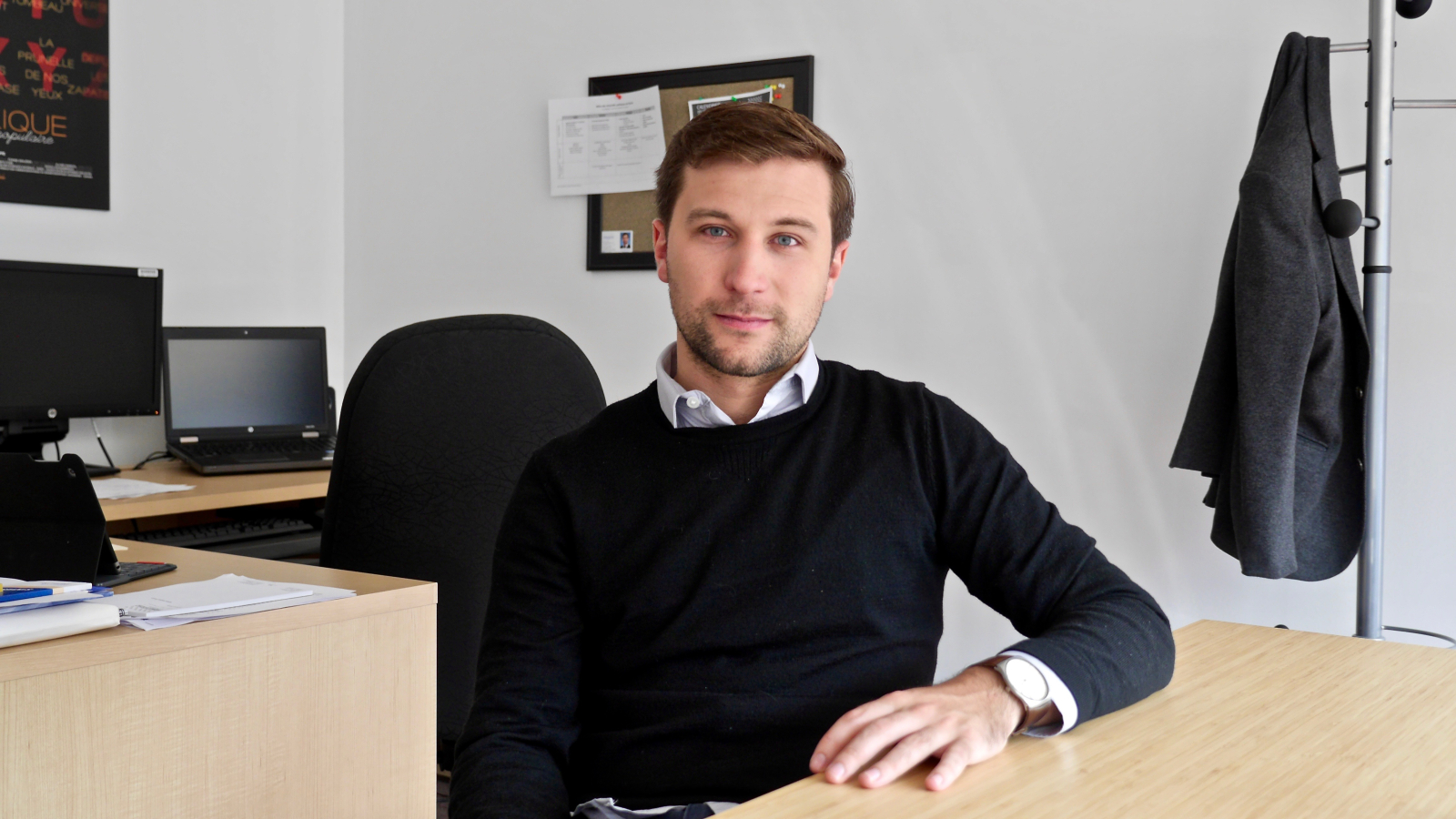
What about the upcoming commission on systemic racism?
"We were the first party to ask for a commission on systemic racism but we’ve been very disappointed and concerned about the Liberals’ proposal to hold these meetings behind closed doors. We find that absurd. What we need is a real collective effort, not an exercise with a few experts behind closed doors.
"What we need to do is a full overview. What are the problems on the ground? What solutions can we deliver? This isn't a public relations exercise.
"That (a PR exercice) wasn't what we asked. It’s not what community groups were asking. And the Liberals, once again — in terms of inclusion — have beautiful slogans, and seem to make proposals as a front. In reality, they are essentially (targeting) an electoral clientele.
"And that’s not even taking into account the concerns we have like many people related to what is happening within the Human Rights Commission. We are waiting for comments and facts from the president who — until now — has not commented. So we are eager to know what is really going on because the allegations are concerning."
Update: Following this interview, Premier Philippe Couillard said at the National Assembly on Sept. 19, 2017 that the consultations on systemic racism would be public.
How would you sum up your hope for Quebec society?
"What we need is a political rupture. We need to teach a good lesson of humility to the political class that has been leading us for many years."
Would you say the younger generation is more ready for that rupture?
"I think that there are people who have that desire for a rupture among all generations, but there’s a real willingness in my generation for a profound rupture and that’s not only in Quebec. We’ve seen that in the United States, where it was essentially the youth who carried Bernie Sanders’ candidacy. We’ve seen it in France with Jean-Luc Mélenchon. We’ve seen it in Great Britain with the candidacy of Jeremy Corbin.
"There’s clearly — at the moment — in the youth, an impatience to change things and to change them for real. There's fatigue from false alternatives and false solutions. I feel this thirst and impatience. The challenge is to transform it into a real political participation because I’m part of a generation that’s very politicized, very conscientious, but votes very little and doesn’t participate much within political parties.So this is our challenge: to take this fatigue, this willingness for change and to transform it into political energy. We have announcements coming up at Québec Solidaire to try to channel this energy."
Are you worried about 'fake news' in the upcoming election in Quebec?
"Yes, it’s a worrying phenomenon and Quebec is not sheltered from it. We’ve seen all sorts of fake news circulating regarding refugees. People were telling all sorts of falsehoods: that (refugees) had free driver’s licenses, that they had free apartments, all sorts of false things.
"So, yes, it’s worrying and it reminds us of the importance of public media, of regional media and of education starting at the youngest age, an education to information and what is a reliable source, how to check your sources. ...I have hope that this phenomenon will be fixed with time."
Maybe he's just being careful
Maybe he's just being careful at this point, but it makes you wonder why he doesn't mention the systemic corruption that is endemic in Quebec politic. Corporate employers as well as the unions have had far too much influence in how anything gets done, or not done. The Charbaneau (sp) inquiry's terms of reference did not go nearly far enough and only cracked the door on what is a massive network that drives up the costs of everything and has resulted in a substandard and crumbling infrastructure as well as social and economic ineqeuality. And do progressive types in Quebec really need to hitch themselves to a heavy and complicated wagon like independence?




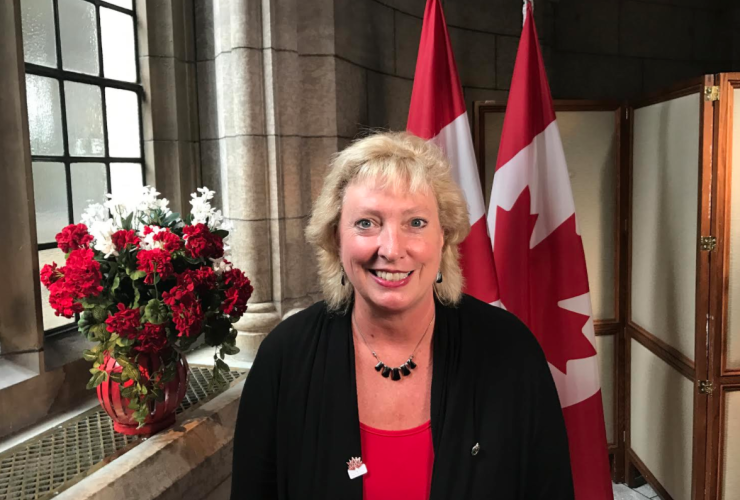

Comments